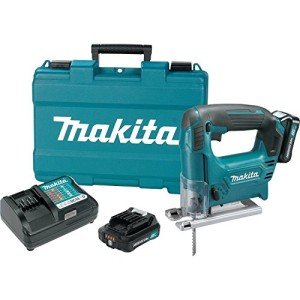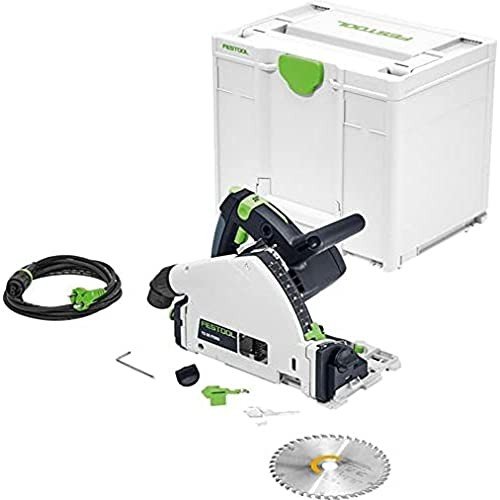The 10 Most Terrifying Things About Shop Power Tools
페이지 정보
작성자 Rosaline 작성일 25-01-20 14:37 조회 2 댓글 0본문
 The Workhorse of the Shop Power Tools
The Workhorse of the Shop Power ToolsPower tools are hand-held and powered by electricity, internal combustion or compressed air. They are used to cut, drill or sanding the material.
A table saw is among the most essential power tools that every woodworker has to have. It can be used for almost every cutting task. Consider a miter-saw stand and drill/driver combination.
Table Saw
The table saw is one of the most versatile tools in the shop. It can cut stock and cross-cut it, slit it, miter it, and even dado or rabbet it. It is also able to cut angled surfaces to make frames or chests, as well as planters.
The saw is equipped with a large circular blade which spins at high speeds. It has tables that are quite large (infeed and outfeed) which support the wood as it moves through the blade. Blade guards protect the saw blade, preventing wood from being caught and thrown back towards the operator. The saw is also protected by the splitter or riving blade, which is a vertical projection located directly behind the blade that could be in the shape of a fin or pin.
Tablesaws of the contractor style are equipped with a larger motor which is hinged off the rear and drives the blade using two or three rubber V-belts. They are usually used by tradesmen and carpenters but they can be found in home stores as well. These saws come with more features, including an adjustable mitertable that slides, and are more durable than portable ones.
Smaller table saws come with smaller motors that are lighter in weight that is typically belt driven. These saws are more geared toward hobbyists and for domestic use. Many feature a sliding miter table, which allows the user to create intricate cuts like those for picture and mirror frames, drawers, cases, and boxes.
Utilizing a table saw correctly is important to avoid injuries. Always remain to the left of the blade when making cuts that rip and ensure that your hands are away from the saw's edge. When cutting, it is important to use a guide block or push stick. This is particularly true in commercial environments where HSE guidelines require you to keep at least one hand away from the blade.
A simple adjustable tapering tool you can build yourself is the quickest and most efficient method of cutting tapered legs for many woodworking projects. A tapering jig can be adjusted to any angle that is between 15 and 0 degrees, which allows you to cut any set of tapered legs to fit furniture such as cabinets or tables in your shop.
Bandsaw
Bandsaws can be used to cut wood and metal into various shapes. It's an excellent tool for custom fabrication. It's also a great tool for woodworking projects like furniture and cabinetry. The saw can be used to cut curved cuts including circles, and can cut through many types of materials including ice.
There are two kinds of bandsaws: vertical and horizontal. Vertical bandsaws are typically used for cutting freehand and excel at resawing as well as cutting in curved lines, while horizontal bandsaws are more adept in making straight and cutting angles. The saw can be operated manually or using an electric feed system. Manual bandsaws require that the user manually lower and lift the blade with each cut. The powered feed systems are more efficient.
When using the bandsaw, it's essential to put safety first. Always wear safety gear, such as safety glasses and ear protection to guard against sawdust and noise. To prevent accidents and injuries ensure that your feet and hands out of the blade. It is also important to set up the saw correctly to ensure safe operation. Make sure that the blade and guides are aligned and the blade is properly secured.
Based on the type of material you're cutting, you may have to adjust the feed rate and saw speed to achieve the most efficient results. Regular maintenance, including adjustments to the blade tracking and tension, will ensure that your bandsaw makes accurate and clean cuts, and will also prolong the life of your.
The blade of a bandsaw will usually be made of heat-treated steel to withstand wear and tear that occurs from frequent use. The teeth are also welded to the saw to give it a distinctive shape and preventing them from being pulled loose or damaged by a sudden shock.
The throat depth of a bandsaw determines the width of a piece of wood it can cut. Larger throat depths enable you to cut larger pieces of wood, and are useful for resawing and cutting, both of which are techniques that involve cutting across the grain. Some bandsaws feature tilting tables which can be used to create angled cuts and repurpose scrap wood.
Dust Collector
Woodworking tools generate a lot of dust and chips, which must be collected in order to safeguard your health and keep your shop clean. shop and the longevity of your equipment. The kind of collector you require is determined by the number and size of the power tools (https://severinsen-mcmahon-2.mdwrite.net) you employ in your woodshop, as well in the frequency at which they are used. The best power tools woodworking dust collectors provide exceptional filtering that removes fine particles from the air and allow you to breathe healthier, cleaner and more comfortable while you work.
Whether you have a small one-man workshop or a large production woodworking facility, Nederman has dust collection systems that meet your needs. Our woodworking dust collection waste management, combustible and waste collection dust solutions combine care for the environment while enhancing in machine productivity and quality.
There are many types of woodshop dust collection systems available on the market and include:
A dust extractor that is basic can replace your shop vac. The units connect to your power tools via the hose that connects the dust port on the machine. When you switch on your tool the hose will be activated and draws dust and debris from your workspace.
The majority of dust extractors, based on the brand you select, come with an HEPA filtering to eliminate tiny dust particles that can cause respiratory issues over time. They also usually feature a higher CFM (cubic feet per minute) airflow, which allows for an increased amount of air. They could also have an airspeed gauge and a system that automatically cleans the filter.
If you have a bigger shop or prefer the flexibility to work with your woodworking tools at any time, you should consider a portable woodshop dust collector that comes with an rechargeable battery as well as a plug-in connection that can be connected directly to a power tools online tool. These units are portable and can handle multiple tools at once. They usually come with a caster base. They also include a collection bag or reusable filter for simple emptying.
If you're a skilled woodworker or contractor, you might need an additional efficient dust collection system. These units are more costly than an extractor, however they provide a greater range of filtration options. They also can be installed on the wall or in an area that is dedicated to your shop. These units can be used to clean up drywall, sanding, and other demolition projects, aswell as woodworking.
Planer
The planer is the most efficient buying power tools online tool no woodshop should be without. It might not be the sexiest or flashiest, but it makes one of the most significant improvements in your ability to transform rough lumber into beautiful and useful projects. It is used to reduce boards down to a specific thickness and it works on both softwoods and hardwoods. It is also very useful for tackling knotty, unwieldy or twisted stock that is impossible to work with hand tools.
A portable planer of good quality is well worth the admission price to any woodworking workshop. You might be able find a planer at a great price, but you must pay attention to the condition and the tables for infeed and outfeed. These elements will determine the performance of your planer and whether it will last for a long period before you need to replace the parts. If the cutter head of your planer isn't top quality, it will wear out quickly and you might need to replace it within a short period of time.
Many people confuse the planer with a jointer, but they are not the same machine. The jointer produces a piece of wood straight and flat, whereas the plane cuts it to a certain thickness. Some woodworkers may even use the two machines in tandem to complete a project however both are necessary for any workshop that handles rough lumber on a regular basis.
If you want to do woodworking on a professional level and are seeking a reliable piece of equipment, then a commercial grade planer is a good investment. These machines are designed to be employed in situations where speed of production is more important than surface finish. These machines will save you a deal of time, but you must be cautious not to over-load them. They could be able to burn out. They should also be maintained properly to ensure that they continue to operate in a safe manner. A routine of regular maintenance in the shop will help prolong the life of your planer.

댓글목록 0
등록된 댓글이 없습니다.
